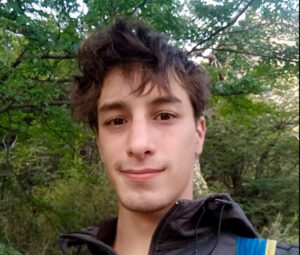Visual imagery typically refers to the voluntary creation of the conscious visual experience of an object or scene in its absence, solely in the mind. There are individuals who have no experience of imagery at all –their minds are completely blind: aphantasia. Hyperphantasia is at the other end of the imagery spectrum: strong and often photo-like imagery. One of the key limitations to studying visual imagery has been its internal private and subjective nature. An intrinsic characteristic of the imagery experience is its degree of vividness, the clarity and richness of the mental representation. The most commonly used questionnaire is the vividness of visual imagery questionnaire (VVIQ). We developed a novel way to study visual imagination through an auditory guided visualization exercise. After completing the exercise, participants solve tasks and questionnaires related to their visuospatial performance, episodic memory, and quality of the experience, correlated to their visualization skills as measured by the VVIQ. A handful of individuals from sleep paralysis have out-of-body experiences (OBE, the experience in which the observer perceives the world from a point of view outside of his physical body), described as “incredibly vivid and having the qualities of veridical perception”. We hypothesized that participants with frequent OBEs will have a distinct visual imagery strategy (and experience) not explained by their VVIQ score. We present preliminary results of this study.

Menu
E-poster
Session: 8
PS8-16 | Visuospatial perception in subjects with out-body-experiences
Alejandro Javier Vische
Laboratorio de Sueño y Memoria, Depto de Ciencias de la Vida, Instituto Tecnológico de Buenos Aires (ITBA), Buenos Aires, Argentina
- CABA,
- Argentina
- Alejandro Javier Vische1
- , Nerea Herrero1,2
- , Cecilia Forcato1,2
- , Francisco Gallo1,2
- 1. Laboratorio de Sueño y Memoria, Depto de Ciencias de la Vida, Instituto Tecnológico de Buenos Aires (ITBA), Buenos Aires, Argentina.
- 2 Consejo Nacional de Investigaciones Científicas y Tecnológicas (CONICET), Buenos Aires, Argentina
